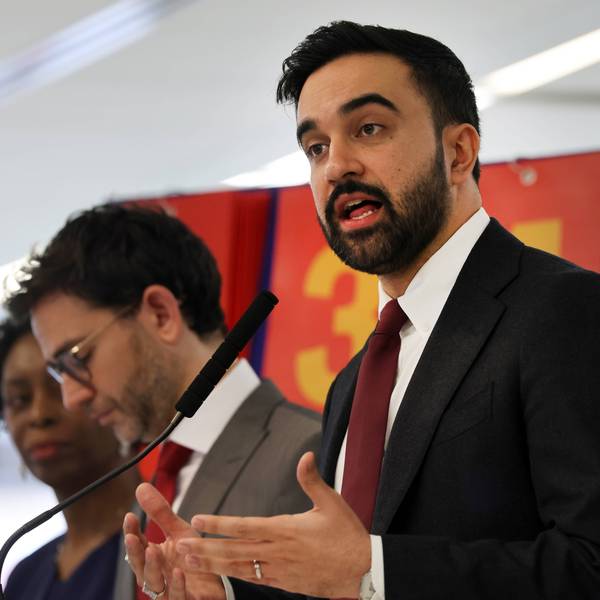The mayor of Vancouver, B.C., announced late Tuesday that an empty lot, the site of a tent city of homeless residents and affordable housing activists, will be transformed into subsidized housing for seniors and people on welfare.
The announcement marked a rare progressive victory in a city marred by rapid gentrification, a years-long housing crunch, and an influx of foreign money that has transformed the coastal community into a "playground for the rich."
"We've come to an agreement to make sure that the 58 West Hastings site is 100 per cent social housing," Vancouver Mayor Gregor Robertson said, according to CBC.
"Part of this is making sure this building is available to people who are on welfare, who are on pensions," Robertson added.
Activists built the tent city at 58 West Hastings Street--a long-contested site in Vancouver's fraught battle over housing--last month to protest a lack of affordable housing and skyrocketing homelessness.
As a result of Vancouver's ongoing real estate boom, a staggering 90 percent of one bedroom houses are now valued at more than $1 million CAD. The city's real estate price hike is outpacing New York and London, and its housing is Canada's priciest.
The tent city was the brainchild of local progressive groups Vancouver Area Network of Drug Users (VANDU) and the International League of People's Struggles (ILPS), created during a day of action to call attention to the housing crisis on July 9.
The occupation of the empty lot was intended to show that "the housing and homelessness crisis is not just a matter of the so-called 'street homeless,'" the organizers wrote.
"The crisis includes more than 100,000 people throughout B.C. who are evicted, couch surfing, displaced, underhoused, pushed out of tent cities, criminalized, and homeless," they continued. "We are calling out for homeless and evicted people to join these occupations, take them back from development corporations, and transform them from protests to spaces of survival, safety, and community."
Activists declared: "We are here, holding this space, because we refuse to sit idly by while our community members suffer the indignity of homelessness, the shelter system and unsafe, unhealthy, and inadequate housing!"
Only days after its creation, VANDU reported that the tent city was filled to capacity and forced to turn away homeless people who hoped to find refuge there.
And despite Robertson's vow to rezone the site and build "as many as 300 homes" there, Global News reports that one local homeless advocate, Jean Didieu, "was happy about the announcement--but he's not celebrating just yet."
Didieu told the news outlet that Robertson "has committed a lot of promises for us, for ending homelessness for so many years."
Yet local housing advocacy group Carnegie Community Action Project pointed out that the mayor's decision is relatively small in scope:
Homelessness in Vancouver remains at record heights.



